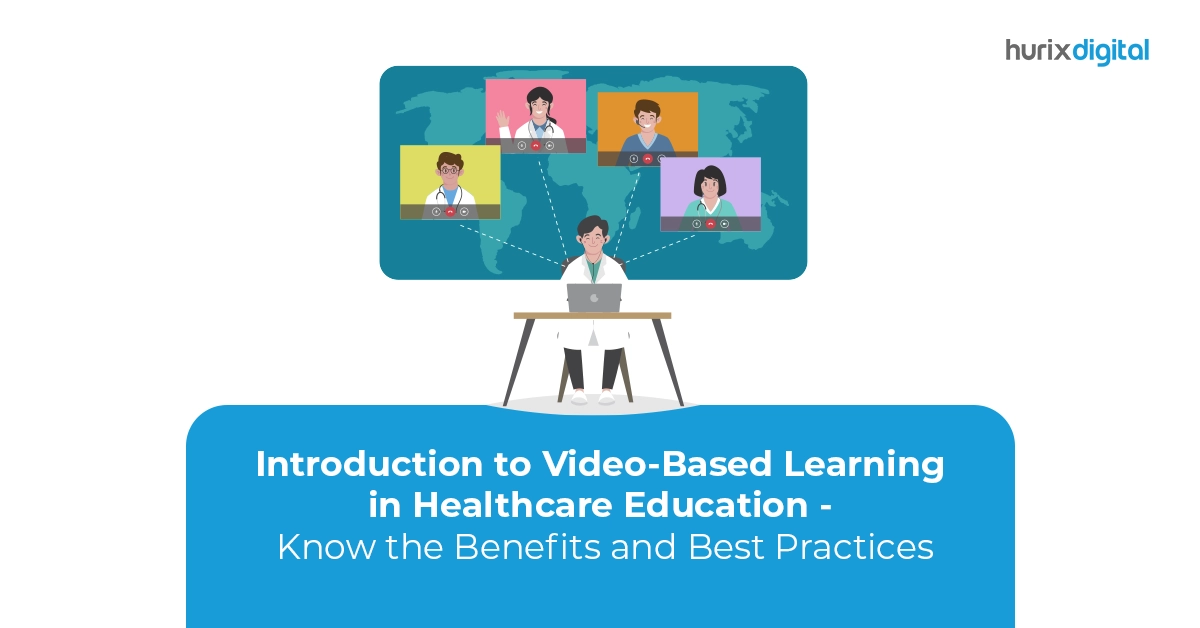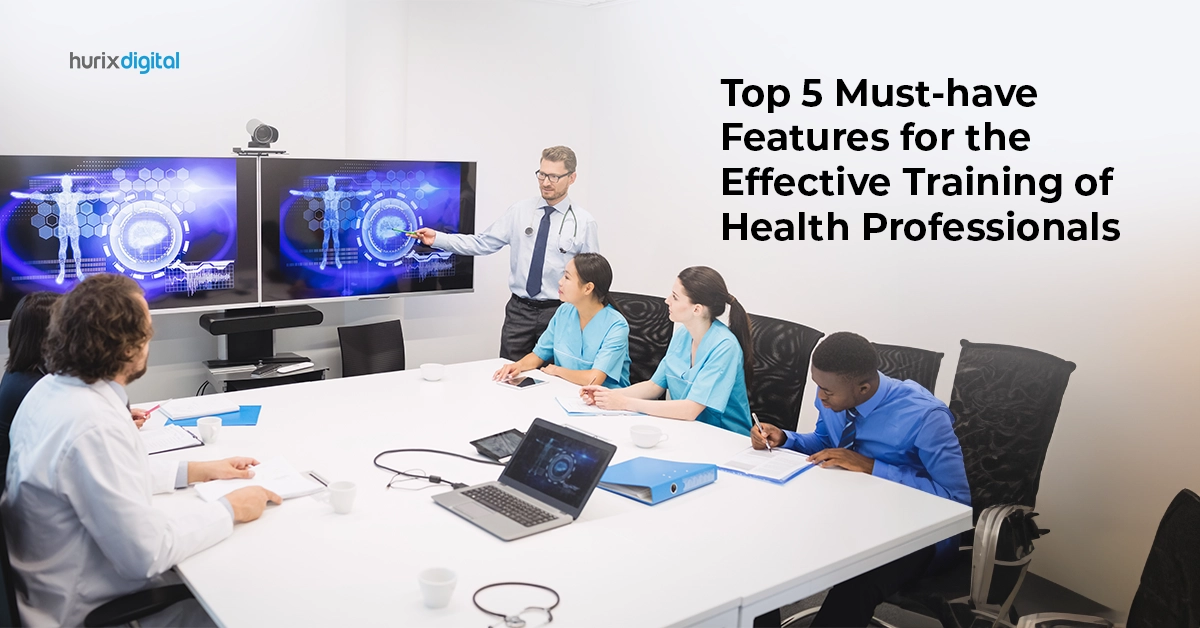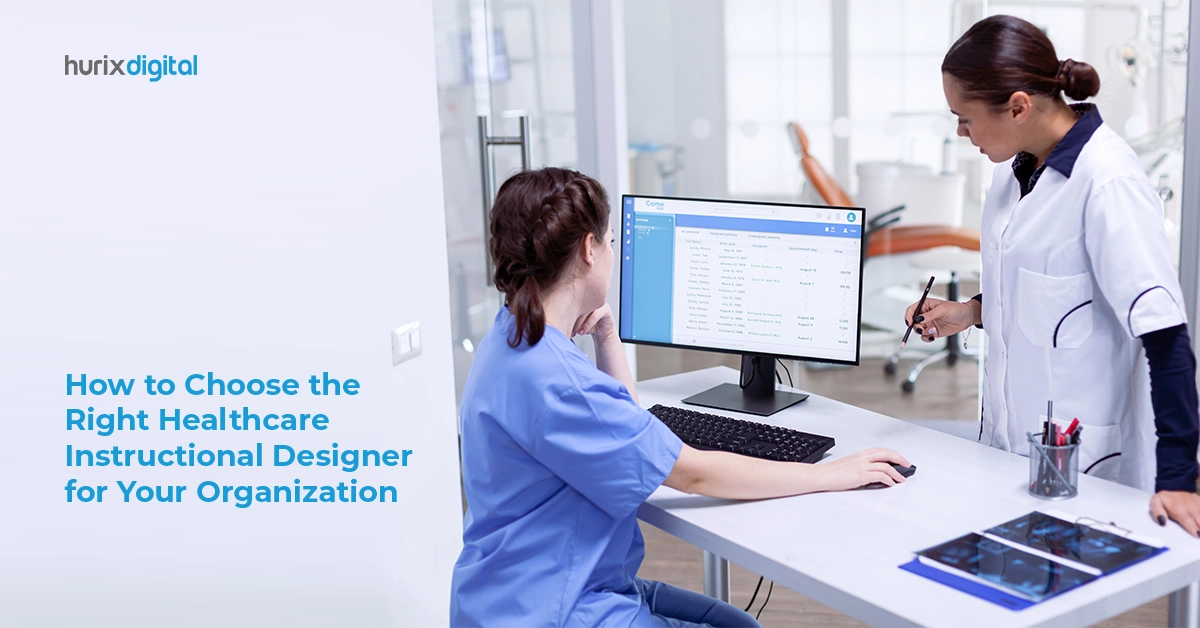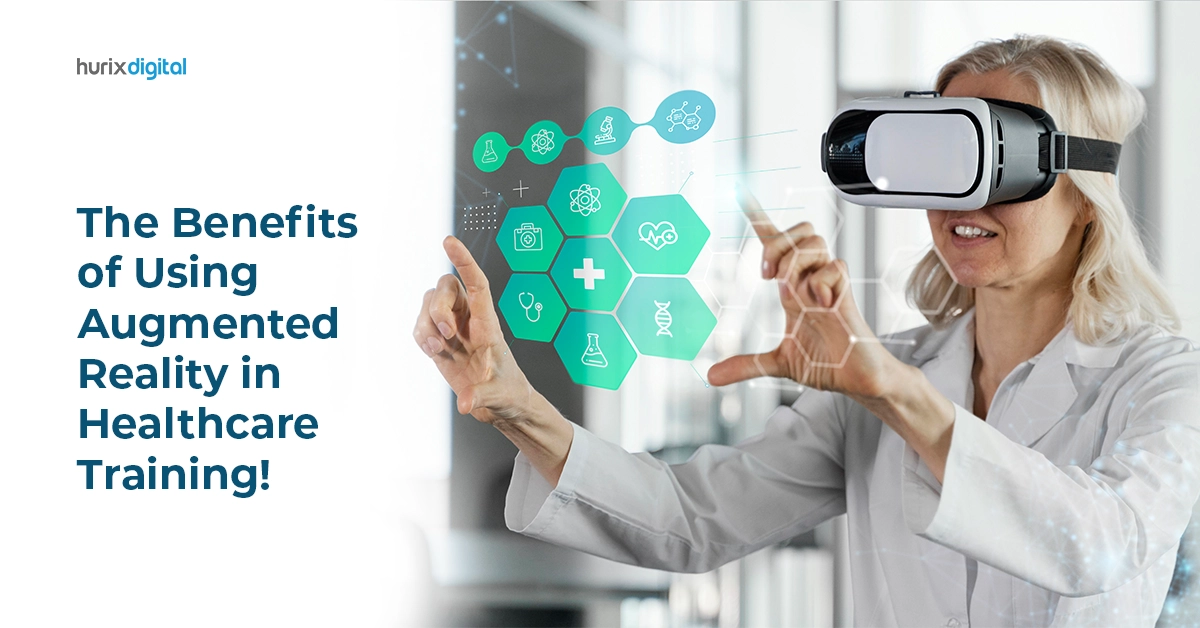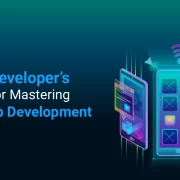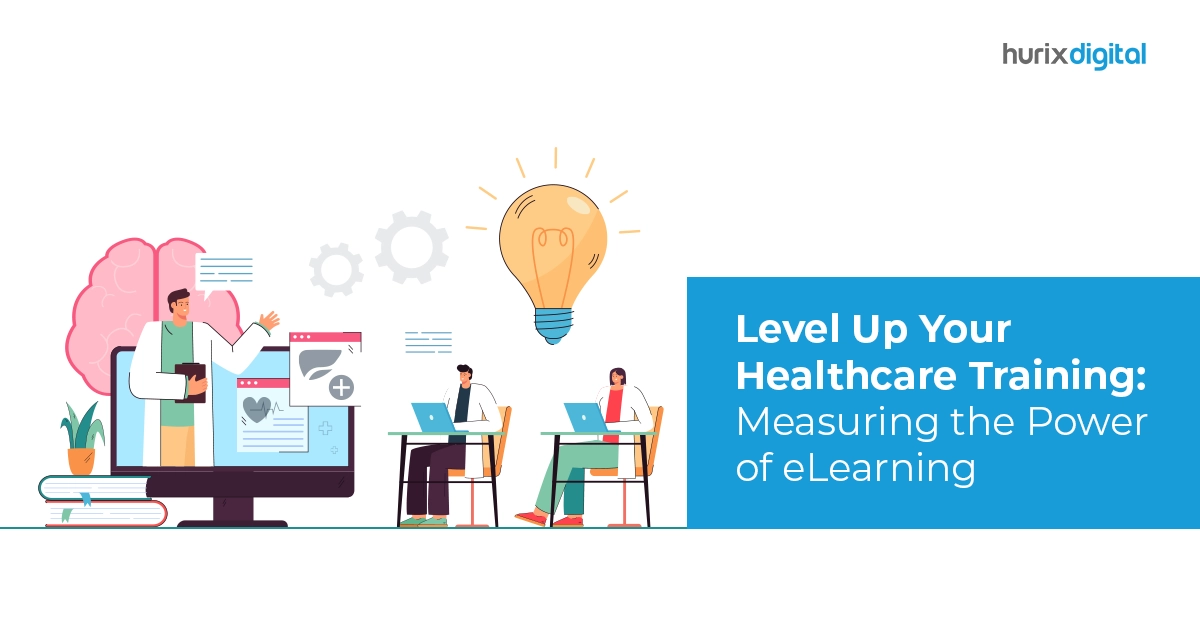
Level Up Your Healthcare Training: Measuring the Power of eLearning
Summary
Discover how to measure the effectiveness of eLearning in healthcare training. This blog discusses methods for evaluating the impact of digital learning solutions.
When it comes to healthcare training, eLearning solutions have revolutionized the field, offering unparalleled opportunities to elevate skills and knowledge effortlessly.
Studies show that the global eLearning market is expected to reach $336.98 billion by 2026. This not only highlights the exponential growth of eLearning but also shows its significance in healthcare training.
But with the ever-growing popularity of eLearning in healthcare education, a crucial question arises: is it truly effective? We answer this in this post. Read on!
Table of Contents:
- Why Measure eLearning Effectiveness?
- Key Metrics for Evaluating eLearning in Healthcare
- Assessment Methods for eLearning in Healthcare
- Optimizing Your eLearning for Better Results
- Conclusion
Why Measure eLearning Effectiveness?
Here’s a deeper look at the key reasons why you should measure the ROI of eLearning in healthcare:
1. Maximize Learning Outcomes
Effective assessment allows you to identify areas where your eLearning program might be falling short. Are learners struggling to retain key information? Are specific skills not being adequately developed? By measuring knowledge gain, skill development, and knowledge retention, you can pinpoint weaknesses and make targeted improvements to optimize learning outcomes.
2. Demonstrate ROI and Value
Healthcare institutions face constant pressure to justify training expenses. Measuring eLearning effectiveness allows you to quantify its value proposition.
Track metrics like reduced training costs, improved staff performance on the job, and potentially even decreased patient complication rates (if applicable to your training program). This data provides compelling evidence to demonstrate the positive impact of eLearning on your organization’s bottom line and patient care quality.
3. Boost Learner Engagement and Motivation
Assessment isn’t just about evaluating learners; it’s also about keeping them engaged. When learners see their progress reflected through pre- and post-assessments or receive feedback on their performance in simulations, it fosters a sense of accomplishment and motivates them to continue their learning journey.
Effective assessment can also identify areas where learners might be struggling, allowing you to provide additional support and ensure they stay motivated throughout the program.
4. Inform Future eLearning Development
The healthcare field is constantly evolving, and so should your training programs. Measuring eLearning effectiveness provides valuable data that can inform future eLearning development.
Identify what learning activities resonate best with learners, which content formats prove most effective for knowledge retention, and any emerging trends in learning styles. This data becomes a roadmap for creating even more effective eLearning programs in the future.
5. Benchmark Against Industry Standards
By measuring your eLearning program’s effectiveness, you can benchmark your results against industry standards.
It allows you to identify areas for improvement and stay ahead of the curve. Research best practices in eLearning assessment for healthcare professions and compare your metrics to industry benchmarks to see how your program stacks up.
Also Read: Simulation Training: The Future of Healthcare Professional Development
Key Metrics for Evaluating eLearning in Healthcare
Here are some key metrics to consider when evaluating the effectiveness of your eLearning program in healthcare education:
1. Knowledge Gain and Skill Development
This is the core objective of any educational program. You can measure knowledge gained through pre and post-assessments, quizzes, or simulations. Skill development can be assessed through practical exercises, case studies, or role-playing scenarios within the eLearning modules.
2. Learner Engagement
A captivating eLearning program keeps learners hooked and actively participating. Track metrics like completion rates, time spent on modules, and interaction with learning activities.
3. Transfer of Learning to Practice
The true test lies in how effectively learners can apply their newfound knowledge and skills in real-world healthcare settings. Consider incorporating scenario-based assessments, peer reviews of practical applications, or feedback from supervisors.
4. Return on Investment (ROI)
While ROI might be more challenging to quantify in healthcare education, it’s still an important metric. Evaluate factors like reduced healthcare training costs, improved staff performance, and decreased patient complication rates to estimate the overall value your eLearning program delivers.
Assessment Methods for eLearning in Healthcare
There are various methods to assess the effectiveness of your eLearning program:
- Pre and Post-Assessments: These assessments gauge a learner’s knowledge level before and after completing the eLearning program. It reveals the program’s effectiveness in knowledge transfer.
- Knowledge Retention Surveys: These surveys, conducted at regular intervals after completing the program, assess how well learners retain the information over time.
- Skills Demonstrations: Healthcare professionals can showcase their acquired skills through practical demonstrations, role-playing scenarios, or simulations.
- Learner Feedback Surveys: Feedback from learners provides valuable insights into their experience with the eLearning program. Look for feedback on content clarity, learning activities, and overall program effectiveness.
- Focus Groups and Interviews: Conducting in-depth focus groups or interviews with learners allows for a deeper understanding of their experience and any challenges they faced while navigating the eLearning program.
Remember, a comprehensive approach to assessment that combines quantitative data (metrics) with qualitative data (feedback) provides the most valuable insights.
Optimizing Your eLearning for Better Results
Here are some key tips to optimize your eLearning program and maximize its effectiveness:
1. Align with Learning Objectives
Ensure your eLearning modules are aligned with the specific learning objectives and competencies healthcare professionals need to acquire.
2. Variety Is Key
Don’t rely solely on text-heavy modules. Incorporate a variety of engaging learning activities, like interactive simulations, case studies, videos, and gamification elements, to cater to different learning styles and keep learners motivated.
3. Make It Mobile-Friendly
In today’s fast-paced world, healthcare professionals need flexible learning options. Ensure your eLearning program is accessible and optimized for mobile devices like smartphones and tablets. It allows learners to access training materials anytime, anywhere.
4. Ongoing Support Is Crucial
Learners shouldn’t feel like they’re on an island. Provide ongoing support mechanisms within your eLearning program. It could include discussion forums, Q&A sessions with subject matter experts, or even a dedicated help desk.
By following these optimization tips and implementing a robust assessment strategy, you can ensure your eLearning program delivers a positive return on investment and empowers healthcare professionals with the knowledge and skills they need to provide exceptional patient care.
Also Read: Healthcare Access for All: Navigating USA’s Digital Accessibility Standards
Conclusion
The landscape of healthcare education is undeniably shifting. eLearning solutions are emerging as powerful tools to equip healthcare professionals with the knowledge and skills they need to excel in a demanding field.
However, simply implementing eLearning isn’t enough. To ensure success, you need a data-driven approach that measures its effectiveness and optimizes the learning experience.
Want to harness the power of eLearning and transform your healthcare training? Hurix Digital’s team of learning and development specialists is here to help.
Contact us today to discover how we can help you design and deliver high-impact eLearning solutions that elevate your healthcare training to new heights.

Senior Vice President
A Business Development professional with >20 years of experience with strong capability to sell new solutions and develop new markets from scratch. New Market Entry Specialist with experience of working in two of the largest emerging markets – China & India. Also covered other key markets in APAC, US, EU & ME. Exceptional experience of conceptualizing, ideating and selling new learning technologies like VR AR, etc. across multiple industry verticals.
